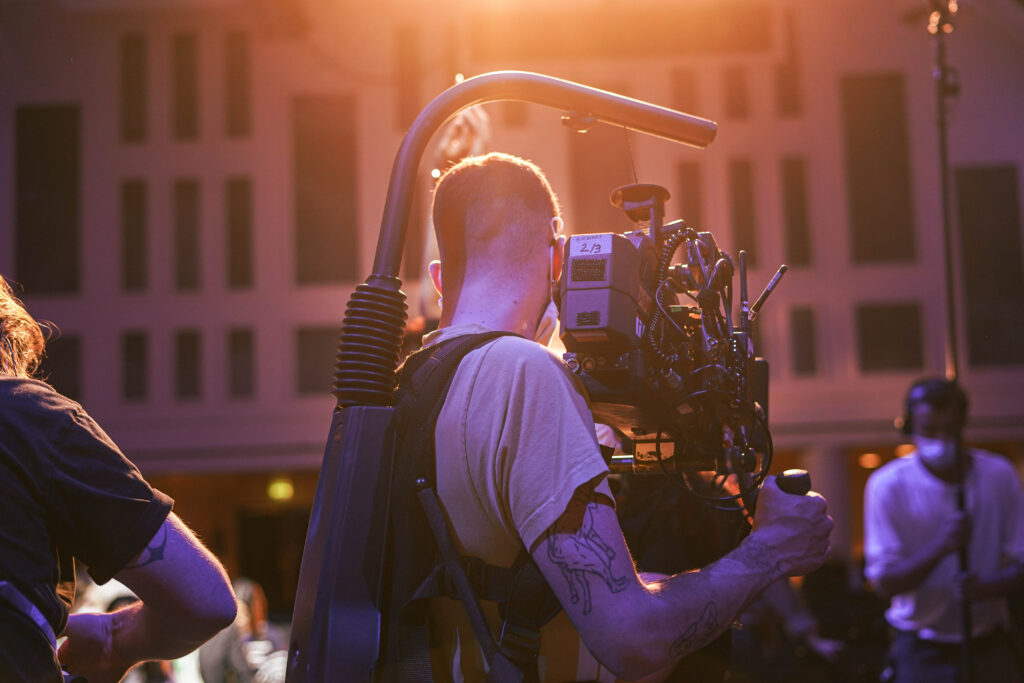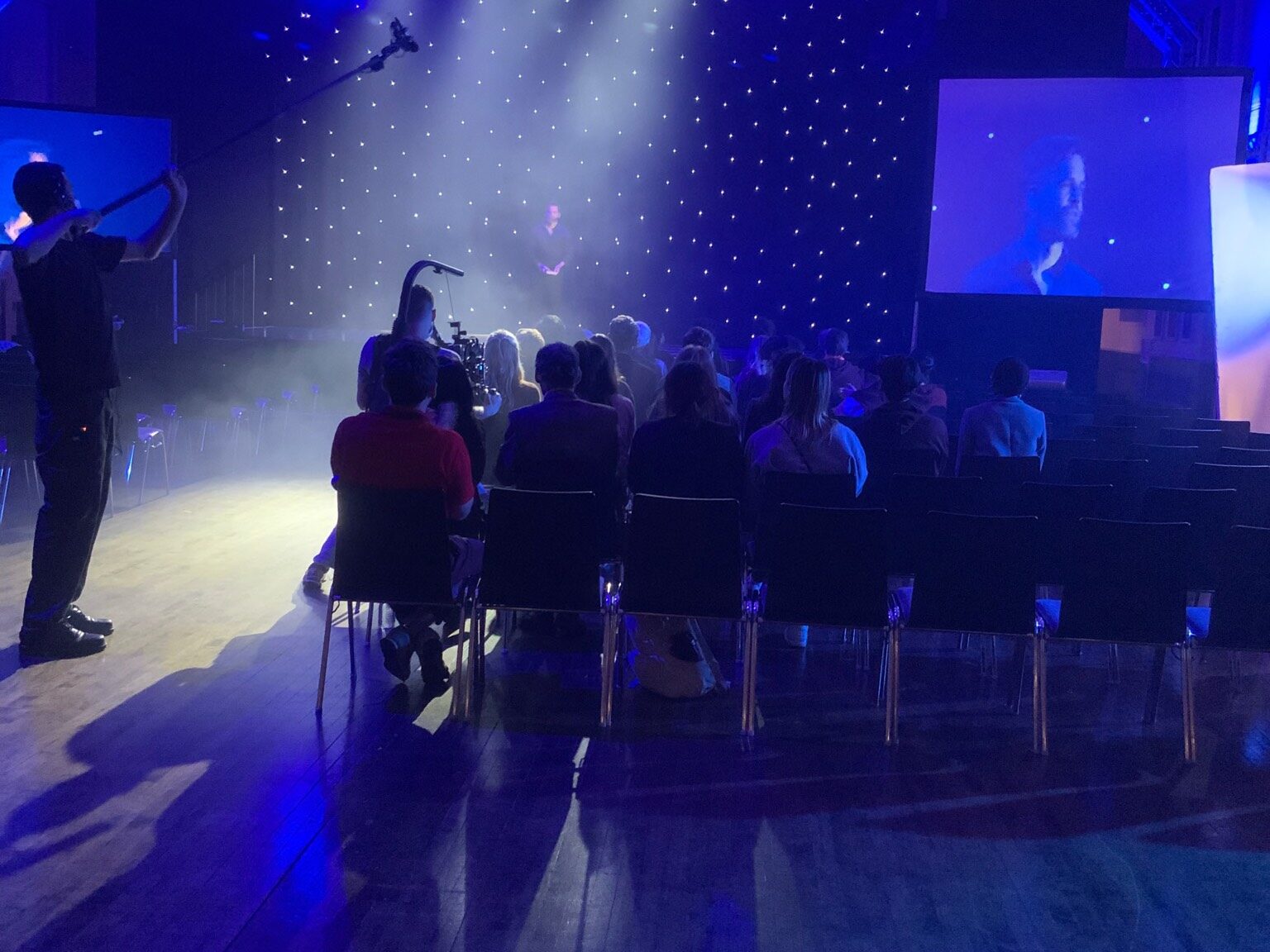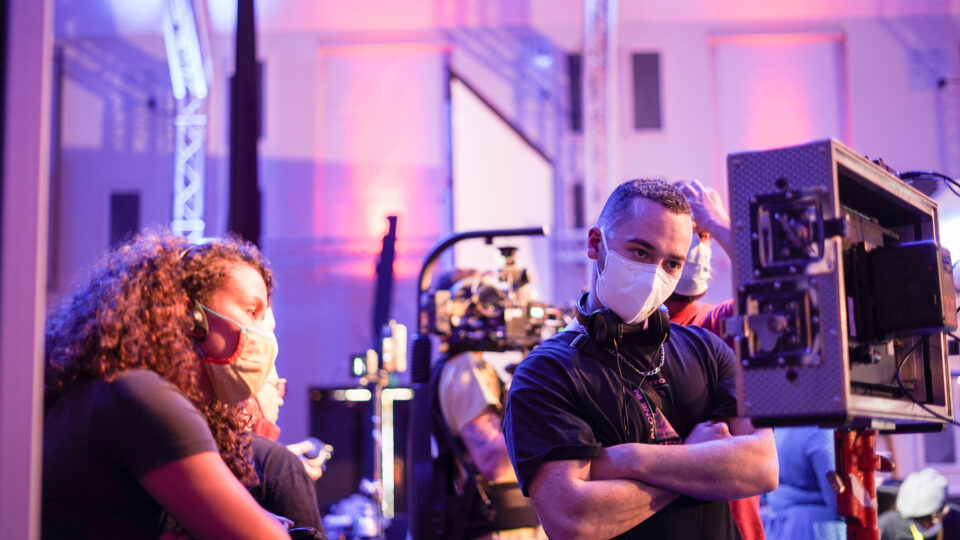All photos from Smile School, an NFTS production (prod. Emma Grazette, dir. Nick Alexander, DOP: Jack Hamilton)
Oona Chanfi spoke to Emma Grazette about what a producer’s responsibilities are, what they spend their time doing on a project and the different types of producer that there are in the industry.
So when did you first get into producing?
I worked at a film festival, on locations teams, and as a runner on big budget productions so I could try and see where I’d fit in. I realised I didn’t want to work on the crew, because actually working on crew is very specialised, and you only come on to the project in prep or to shoot. I actually prefer having an overview of the whole journey of a project, from its conception to its delivery, rather than just coming on to shoot, or during post.
I knew I didn’t want to write because it’s too solitary for me. And then I tried my hand at directing short form and I really didn’t like being at the centre of everything on set. I think then the penny dropped. Actually, as a producer, you get to write, work with creatives, have insight across the project. It’s a very sociable role, lots of organisation, it’s really varied.
How would you describe the role of a producer?
I would describe it as the role that drives the filmmaking team, bringing all the moving parts together and balancing everything. When everyone else is completely exhausted, whether that’s in prep or on set, or whether you’re trying to get funding, you have to be the one who has enough energy to get everyone going and keep them motivated and help them remember throughout the journey of the film why it is they want to make this in the first place.

What are the specific skills involved in producing?
Producing is quite a multifaceted role. It’s not one thing or the other. And there are different types of producer too
You need to have those logistical skills, budgeting, scheduling, understanding what things cost, and what the departments need. What do they actually need, versus what they’re asking for! I’m not a line producer, though I do line produce and have line produced because I need to understand what my line producers are doing. So if I were working on a film or a TV series, I’m not going to be the one creating that detailed 40 page budget, my line producer is going to do that, but I need to be able to look at it and understand it, and perhaps do a viable first draft to give a ballpark budget to potential funders.
Then there’s the creative side, which not all producers take on. And that’s the conception of projects. Writing to agents, asking for rights to books, starting to adapt the books, finding writers to attach, creating momentum, giving it structure and direction, and being a co-creator, and soundboard for the writer. When they’re just in the middle of a 90 page script and they’ve lost their way they might need you to help steer them. And then I suppose you’re kind of like an editor for a book in a way, you’re giving your feedback from outside the centre of the creative whirlwind. You can end up being a therapist to everybody too. On short films, you are a caterer, you’re a taxi driver, you’re a crowd marshall, you’re an AD, you’re a costume designer. And then when you get to the bigger stuff you still sometimes have to jump in and do different things. You also need to have a business brain, because it’s all very well getting enough money to make one film but if you can’t make that film somewhat successful, or at least deliver what you proposed you won’t get any more money to make another film.
So you might be the kind of producer who’s got a network, or you might be the kind of producer who can close the finance and understand the financials. You might be really good on script development, you might be really good on the logistics and bringing it all together. It’s unlikely that you’ll be really good at all of them. But that’s okay because then you just have to know how to augment your weaker skills with other team members.
What type of producer would you say you are?
I guess I am still on that journey to an extent. I tend towards bigger picture thinking, and I don’t like being on set that much. So I think I would be best suited to exec producing projects, where I have the overview of lots of elements and work with the creatives. It’s more a sort of guide and mentoring type role and understanding the lay of the land in the industry and sort of trying to predict what audiences might want
Would you say there’s a process that you follow with each project?
Every single project is different, because everybody you’re working with is different, unless you work with the same team on every project in which case it’s still going to be different because it’s a different project. Though there’s a timeline that has to happen in a certain order, In terms of the approach to working through those elements, I think that you have to adapt to the people and the circumstances you’re working with.

How do you choose which projects to be involved with?
The journey of making a film takes so much out of you and it requires so much time, on a feature you might be working on it for years. You have to find the project engaging enough to be able to stick with it for that long. And because I value the journey and what you can learn from people and how you work together, I would choose working with someone who I found interesting and got along with over a project I loved but I didn’t connect with the creator.
What made you choose to go and study producing? Emma is currently studying an MA at the National Film & Television School.
Just because I’m older and I’ve come to this career at a later point in my life, and I spent five or six years trying to figure out what to do in the industry, then a few years, producing at a small Indie. I wanted to learn and grow and get the information and the knowledge to make more ambitious work
How do you create a network of people you are going to work with? And how important is that for you?
I think it’s vital, I think it’s probably the most important thing. I mean there’s loads of ways. Going to film school is a good way of meeting people, going to any film network events, film festivals. And then I think also what’s really helpful to me is to just watch as many short films as I can and contact the writers and the directors whose films I like. Have a chat, see what they’re thinking for their next project. Do we connect? And you can build new relationships that way.
Finally what advice would you give to someone who’s looking to start out as a producer or learn more about producing?
Read as much as you can and watch as much as you can. And really get to know who you are, and what your sensibilities are. Make as many shorts as you can, Get involved, so you start to understand how it all works, and how it all fits together.
If you can get a mentor as well, somebody that’s not so big that they don’t have time, or not so far ahead of you that they can’t remember what it was like when they were in your shoes, but someone who’s just a little bit further ahead of you. My mentors have just been incredible.
And also being confident and assertive enough to ask people when you don’t know something. Ask questions all the time!
Emma also spoke about her production career at our recent Labs event. Watch it back on our YouTube channel.
